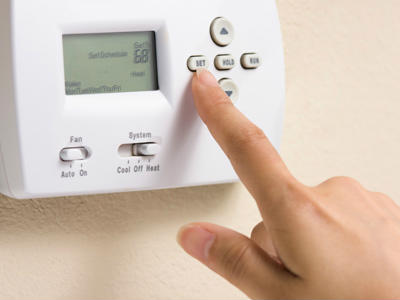 Summer months are a popular time for many families to take a vacation. If you plan on spending time away from your home this summer, remember to prepare it for your absence. With the popular preparations you can cut electrical costs and keep your home and electronics safe while you are away.
Summer months are a popular time for many families to take a vacation. If you plan on spending time away from your home this summer, remember to prepare it for your absence. With the popular preparations you can cut electrical costs and keep your home and electronics safe while you are away.
The Energy Education Council offers these tips to help prepare your home for vacation:
- Change thermostat settings before you leave. When temperatures are warm outside, it is unnecessary to keep your home as cool as you normally would since you will not be in it. Turn the thermostat unto a warmer temperature or turn it off entirely. If you have a programmable thermostat, ou can adjust it to call down the house just in time for your return home.
- Unplug appliances and electronics. You will not use your computer, television, or toaster while you are away, but they will continue to use energy and waste money if you do not unplug them. Even when appliances are turned off, many of them of into standby mode and continue to draw power. Unplug appliances and electronics to prevent phantom power draw. This also protects your electronics if there is a power surge in your absence.
- Adjust the water heater. The water heater can account of 15 to 25 percent of the average energy bill. Water heaters continue to use energy to keep the stored water warm. Since you are not using this water while on vacation, either adjust the water heater temperature to the lowest setting, or turn it off if you will be for more than three days.
- Put lights on a timer. If you plan on leaving lights on to deter burglars, set a timer. You can save money by not having lights on constantly and ale it appear that people are home by varying times the lights are on.
Additionally, there are other ways to make your one more efficient throughout the summer, not just while on vacation:
- Clean your air conditioning unit. Blocked or dirty air filters and coils can refuse your system;s ability to push and pull are through vents, so make sure to wash or replace filters. Also remove debris form around the outside unit.
- For inside lighting, use CFL or LED bulbs. Not only do that save energy, but they also give off less heat then regular incandescent bulbs, keeping your home cooler
- Make sure all air leaks are sealed. Inspect caulking around windows, doors, and any openings into the home. Weather stripping and caulking will help maintain your home’s temperature.
- Close your draped or curtains during sunny or hot days. This helps prevent the summer sun from warming up your home through the windows.
- Clean off clueing fans. Make sure they are circulating are in the correct direction for the season. During warm months, ceiling fans should operate in a counter-clockwise direction. This creates a cooling effect at less cost than air conditioning.
Source: Energy Education Council


